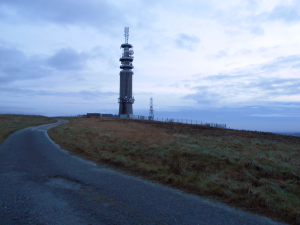As part of
7th Euroacademia Forum of Critical Studies: Asking Big Questions Again
23 – 24 November 2018
Nice, Côte d’Azur, France
Deadline for Paper Proposals: 15th of October 2018
Panel Description:
Urban image construction is a reflection, expression and constitutive factor of local identity formation and dynamics. Cities simultaneously localize identities and connect them with wider global signs of utility, function and symbolic order. Elasticity of the label identity accommodates everything that surrounds us as presence or absence, persistence or change. As a theatrical scenery, cities change after each act, sometimes with discrete adaptations, sometimes with radical interventions. If the scenery is composed of streets, parks, roads, museums, monuments, shopping malls and buildings connected through the intricate network of the perpetual and cumulative actions of its inhabitants, every adaptation and intervention affects its multi-dimensional identities. Changes in urban visual identities unfold as a form of public art feeding from the immense potential of social imaginary significations accommodated by a time’s perception of stability, structure and continuity. Urban change is itself a production of meaning, interpretation and identity making practices.
As the chaotic canvases of cities are being stretched over a framework of identity, its further exploration seems more than appropriate. Amidst the incredibly rapid urban growth crowding more than half of the world population in towns and cities, the questions are only going to keep multiplying. How are city identities made and re-made, used and abused, imagined and narrated, politicised and communicated, expressed and projected, imposed and marketed? And above all, how do they thrive within the dynamic interpolation of the nexus of local-global, centre-periphery, urban – suburban, old and new. As out-dated as these dichotomies may sound, in many places their daily life is far from over. As old cities became new capitals and new capitals struggle for more capital, the challenges of maintaining public-driven collective identities in the face of cultural fragmentation and diversification, coupled with consumer-attractiveness is turning them into urban palimpsests. Urban environments reflect the human needs and values. In an increasingly globalized world, the human beings are becoming more citizens of the world than citizens of the cities. The increasing mobility of the new pilgrims of globalization creates more of the same in the logic of universalized urban functionality. Within this logic, the cities are now in the position to re-evaluate their impact on the world and shape their future in a manner that assumes a wider responsibility that evades a localized mentality. Urban local identities are becoming increasingly thin and rely strongly on negotiating a local specificity with universalized functionality and global responsibility. An increasing need for uniqueness and distinctiveness foster site-specificity aimed at placing a particular urban identity within a global economic hierarchy. Public art became essential for affirming distinctive local urban identities in a universe of serialization and commodification.
As the research on cultural identities of the city is becoming more abundant, this panel aims at adopting a wide-lens inter-disciplinary approach, while focusing on various processes affecting identities in the urban context in its global-regional-national-local interplay.
Some example of topics may include (but are not limited to):
• Collective Memory, Identity and Urban Image Construction
• Appropriation, Instrumentalisation and Functualisation of Public Spaces
• Contemporary Nomadism and the City as a Common Denominator for Collective Identities
• Architecture as ‘Politics with Bricks and Mortar’
• History, Heritage and Urban Change
• Urban Regeneration Projects, Landmark Buildings and ‘Starchitects’
• Non-Places and (Non)Identity
• Immigrants and the Cultural Identity of Cities
• City Marketing and City Branding
• Cities and Public Goods
• European Capitals of Culture and European Identity
• Cities and Sites of Memorialisation
• Identity Creation and the Cultural Offer of the City
• Urban Cultural Heritage as Identity-Anchor
• Minor Places: Dominant Culture and Site-Specific Urban Identities
• Creative Changes of the Cities
• Art and Industry in Urban Development
• Urban Aesthetics
• Urban Installations
• Critical Architecture
• Urbanism and Social Intervention: Inclusion of the Marginalized
• Centre/Periphery Nexuses in Contemporary Urban Development
• Cities and the Quality of Life
• Urban Landscapes and Sustainable Cities
• Contemporary Cities and Environmental Responsibility
• Ugliness, Kitsch and Value in Shaping Contemporary Urban Spaces
• Urban Sites of Identification
• Temporary Urban Interventions
• Architecture as Public Art
Please apply on-line using the electronic form on the conference website or submit by e-mail a titled abstracts of less than 300 words together with the details of your affiliation until 15th of October 2018 to application@euroacademia.org
If you are interested to apply, please see complete information about the conference and details for applicants at:
http://euroacademia.eu/conference/7fcs/

 Follow
Follow